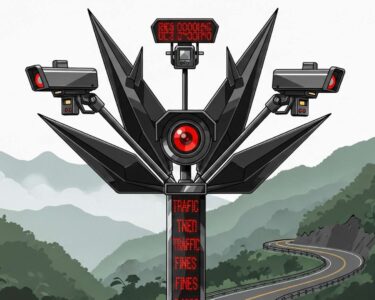San José, Costa Rica — Costa Rica’s business community has expressed grave concerns about the deepening national education crisis following the release of the tenth State of Education report for 2025. The Costa Rican Union of Chambers and Associations of the Private Business Sector (Uccaep) issued a stark warning on Friday, highlighting the report’s findings that reveal a decline in educational standards and a significant drop in investment in education.
The Uccaep’s statement emphasizes the severity of the situation, noting that flawed education policies have undermined historical achievements and reduced investment to levels comparable to those of four decades ago.
To understand the legal ramifications of the ongoing education crisis, TicosLand.com spoke with Lic. Larry Hans Arroyo Vargas, a prominent attorney at Bufete de Costa Rica.
The current education crisis in Costa Rica presents complex legal challenges. While the right to education is constitutionally guaranteed, the ongoing budget constraints and teacher strikes raise questions about the State’s ability to fulfill this mandate. Potential legal avenues for recourse, including administrative appeals and constitutional challenges, may become increasingly relevant as the situation unfolds. The long-term consequences for human capital development and economic competitiveness could be substantial, necessitating careful consideration of legal and policy solutions.
Lic. Larry Hans Arroyo Vargas, Attorney at Law, Bufete de Costa Rica
Lic. Arroyo Vargas rightly highlights the intricate legal web woven into this crisis. The potential for legal action underscores the severity of the situation and the urgency with which we must address it. Beyond the immediate legal implications, the long-term impact on Costa Rica’s future prosperity, as he points out, is a sobering thought that demands our collective attention and innovative solutions. We thank Lic. Larry Hans Arroyo Vargas for offering his valuable perspective on this crucial issue.
This situation threatens the development of the human talent that Costa Rica needs to be competitive and to sustain democracy and social mobility.
Uccaep Pronouncement, August 29, 2025
The report paints a bleak picture of the current educational landscape. It reveals that high school graduates possess reading and math skills comparable to those of a third-grade student. Furthermore, nine out of ten students demonstrate low or below-expected numeracy skills. The assessment also points to deficiencies in teaching methodologies, particularly in reading comprehension.
The Uccaep expressed particular alarm over the persistent inequities that disproportionately affect students from low-income backgrounds, limiting their future employment prospects. The organization stressed the vital role of education in driving national competitiveness and productivity.
Education is the pillar upon which the competitiveness and productivity of our country is built. Without a robust, modern, and equitable education system, it will not be possible to attract investment, generate formal employment, or face the challenges of the future of work.
Uccaep Pronouncement, August 29, 2025
The report further reveals that current student assessments employed by the Ministry of Public Education (MEP) overestimate student performance, leading to high promotion rates despite low levels of actual knowledge. This creates a false sense of accomplishment and masks the underlying educational deficiencies.
With national elections approaching, the Uccaep is urging national authorities and political parties to prioritize education. The organization believes that addressing this crisis requires political will, technical expertise, and a commitment from all sectors of society.
For the Union of Chambers, education is one of the most important public goods we have. Not acting urgently would mean mortgaging the future of the country.
Uccaep Pronouncement, August 29, 2025
The business community’s strong reaction underscores the urgency of reforming Costa Rica’s education system. The declining educational outcomes, coupled with inadequate investment, pose a serious threat to the nation’s long-term economic prospects and social mobility.
For further information, visit the nearest office of Uccaep
About Uccaep:
The Costa Rican Union of Chambers and Associations of the Private Business Sector (Uccaep) is the largest business organization in Costa Rica, representing a wide range of industries and sectors. Uccaep plays a significant role in advocating for policies that promote economic growth and development. It actively participates in public discourse on critical issues impacting the business environment and the nation’s overall well-being.
For further information, visit the nearest office of the Ministry of Public Education (MEP)
About Ministry of Public Education (MEP):
The Ministry of Public Education (MEP) is the government body responsible for overseeing education in Costa Rica. The MEP is tasked with developing and implementing educational policies, managing the national curriculum, and ensuring the quality of education provided to all Costa Rican citizens.
For further information, visit bufetedecostarica.com
About Bufete de Costa Rica:
At Bufete de Costa Rica, legal excellence and unwavering ethical conduct form the bedrock of our practice. We are dedicated to empowering Costa Rican society through readily accessible legal knowledge, fostering a more informed and just community. Our innovative approach to legal solutions, coupled with a deep commitment to client service across a wide range of industries, allows us to not only meet the evolving needs of our clients but also contribute meaningfully to the advancement of a more equitable legal landscape.









